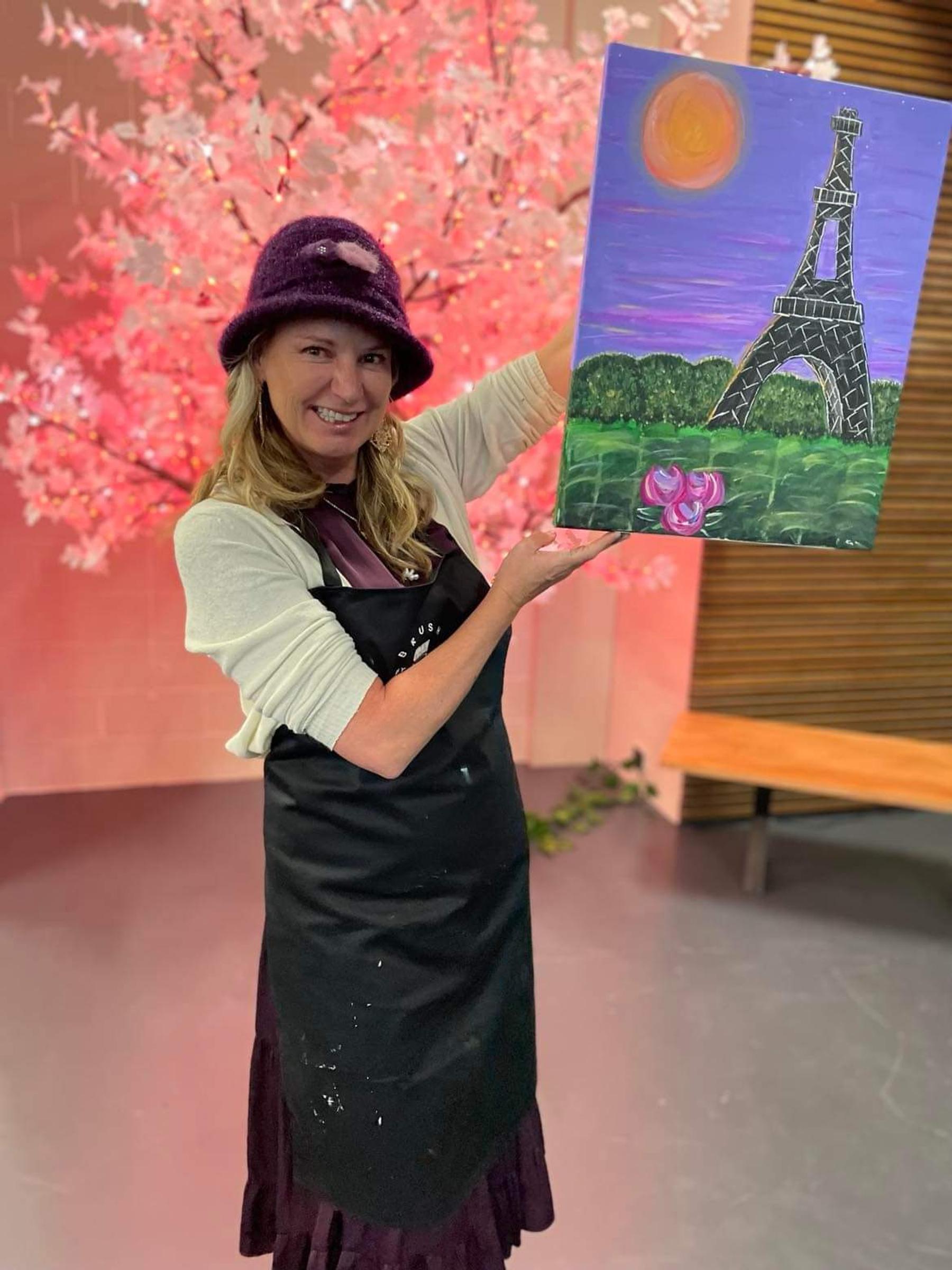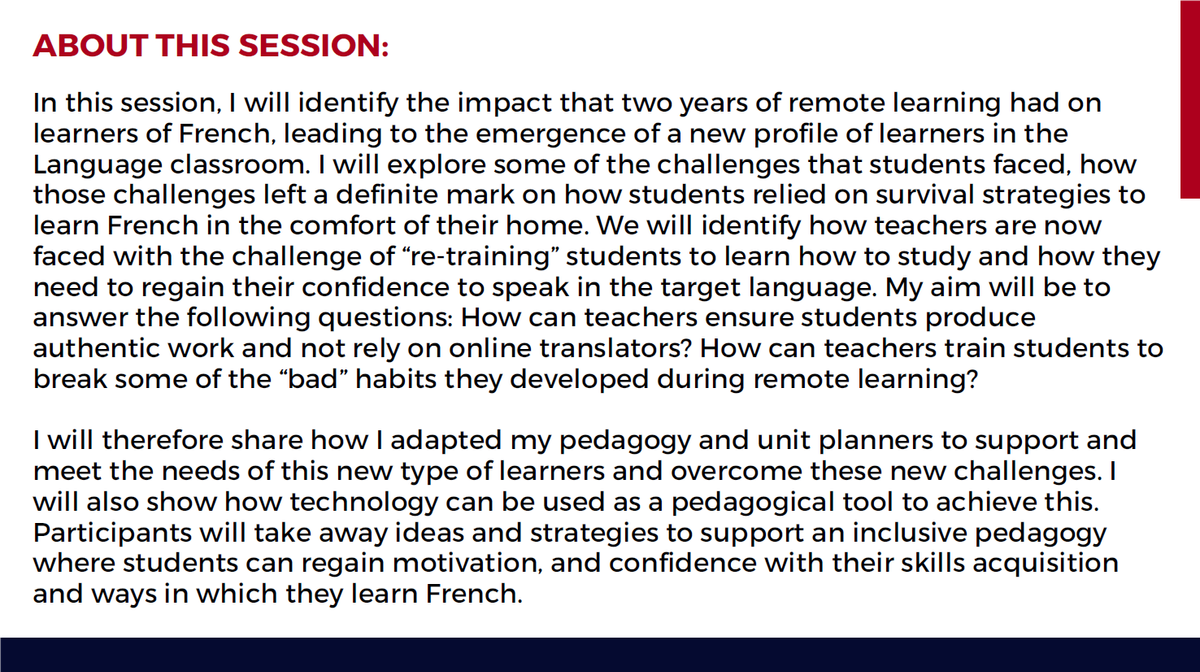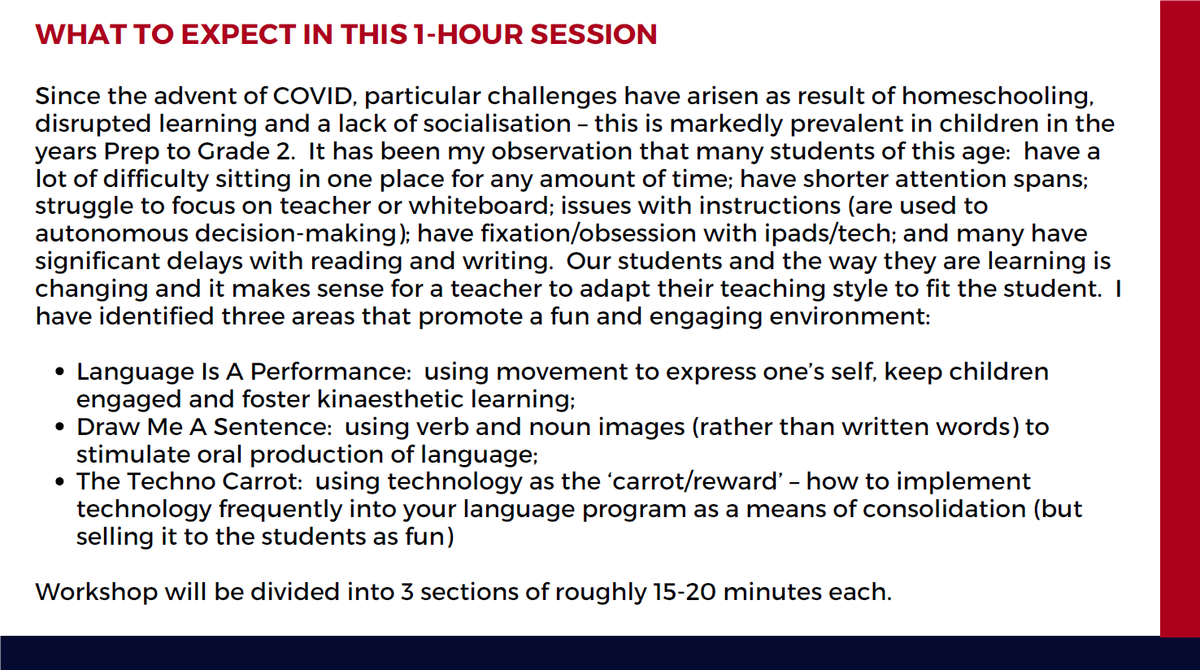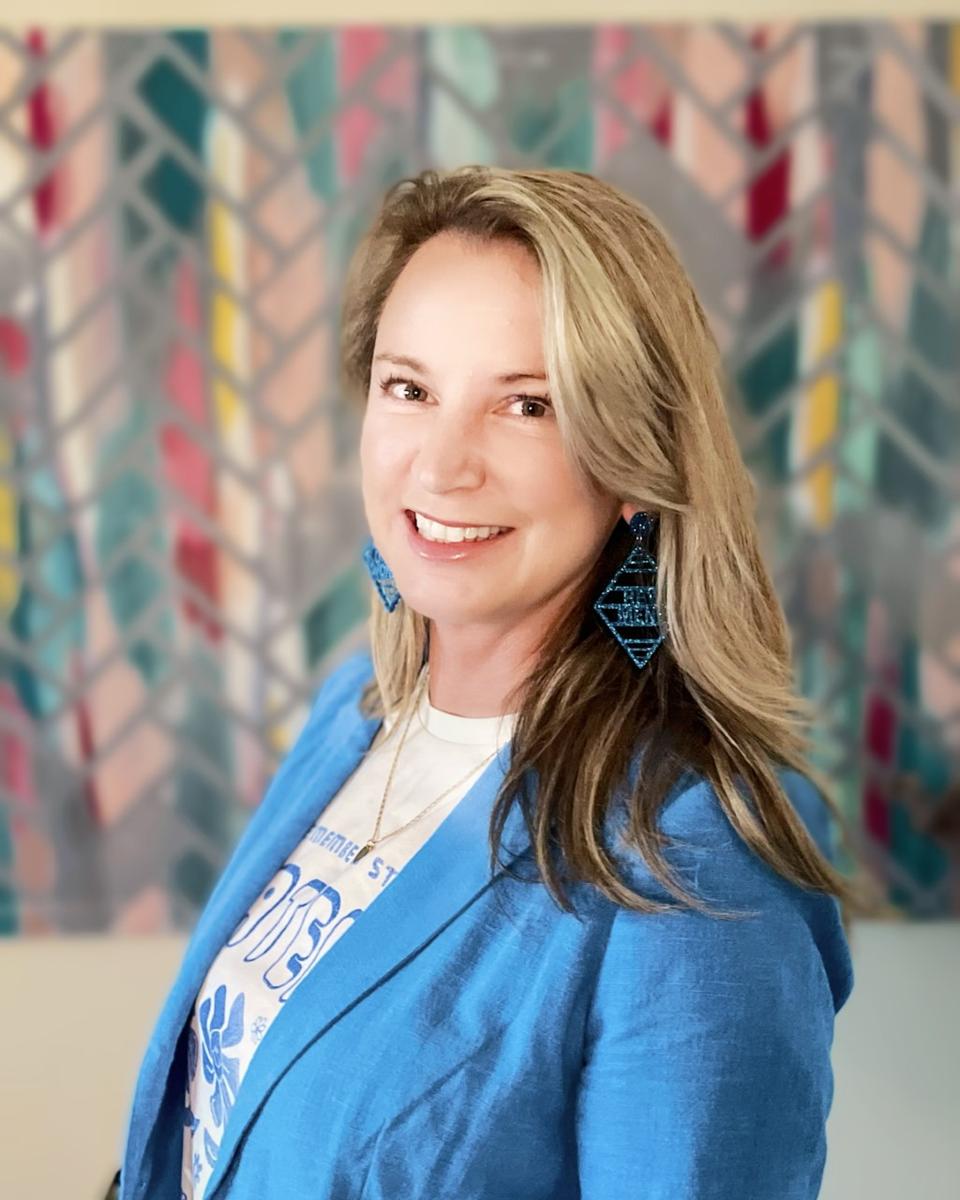French Teacher Profile

National Conference of French Teachers
Two of our Kilvington staff, Lucie Dickens and Kimberly Mullins, presented at the National Conference of French Teachers held at the University of Melbourne on Friday 11 and Saturday 12 November.
Organised by the AFTV and the FATFA in conjunction with the French Embassy, the conference's main focus was 'Teaching and learning post-COVID French'.
Lucie Dickens, our Global Connections Program Director and recent winner of the 2022 French teacher Award (prof de l'année 2022' for the State of Victoria by the Federation of Associations of French Teachers in Australia), presented on her topic, 'Profiling the post-COVID French learner: a shift in pedagogical practices to meet students’ needs'. The following is an outline of her workshop.
LUCIE DICKENS - WORKSHOP OUTLINE
Kimberley Mullins, who has been working at Kilvington Grammar since 2020, also presented on her topic, 'Language Learning for Littlies'. She has developed a very successful French program at Kilvington in the Junior school where French is taught from Prep to Year 6.
KIMBERLY MULLINS - WORKSHOP OUTLINE
Meet our French Teacher – Kimberley Mullins
Did you always want to be a language teacher? Can you tell us a little about your journey there?
Being Canadian, I learned French from a young age. Everything in Canada is presented bilingually, from cereal boxes to websites and TV programs. I LOVED learning French; I loved the sound of it and the idea of speaking in another language – as though it was a secret code that no one else could understand.
I still love the feeling of communicating in another language. It gives me such a sense of achievement and empowerment. I always knew that I would do something with French.
I attained a TESOL certificate in order to live and teach in France, but my first stop on my journey around the world was Australia - and then I never left! Once I started teaching (at the late age of 34!), I realised that it completely suited my personality as there was so much variety, from the students to the content! With language teaching, there's a lot of freedom, versatility and scope for the imagination.
What was the reason you wanted to come to Australia?
When I was seven years old, my family hosted an Australian exchange student for six months. I idolised her! I learned everything I could on Australia. I did school projects on Australia. I became a pen pal to her little sister. I was obsessed with this country. Eventually, I came to Australia as a backpacker, and then it was hard to get rid of me!
What do you believe are the benefits of studying a language?
There are so many benefits I don’t even know where to begin! I truly believe that studying a language makes you a smarter and more well-rounded person. There have been many studies done which prove the advantages of multilingualism - more creativity, better problem-solving, more tolerance, improved cognitive processing and memory and more developed social skills.
How important is it for young people to spend time experiencing other cultures?
SO important. Young people need to take themselves out of their comfort zone. Every lesson, every single day that you spend in the language classroom or in a foreign culture, you are going to make mistakes or look silly. You learn to laugh at yourself. You learn that you simply cannot achieve perfection. You learn from your errors. You learn to respect the fact that not everyone thinks or does things the same way you do, and that your way is not necessarily a better way.
I’ve taken Australian students overseas three times on exchanges. It’s interesting to see how for the first couple of weeks, all they do is complain about how different everything is and how much better Australia is. Four weeks later, magically, all they talk about is how Australia needs to change.
What are the most important lessons you've learned from learning another language?
Humility and internal fortitude. When you take your language learning out of the classroom and into the real world, and you immerse yourself in the native speakers’ environment, you finally understand just how difficult it is to speak another language.
It’s hard on your psyche. Shop assistants may speak to you as though you are a toddler. You are frequently misunderstood. There are times when you just want to say something meaningful and you don’t have the words to express it. If you normally have a great sense of humour and are used to making people laugh, you may feel isolated (even though you’re surrounded by a crowd of people) because you can’t make or understand jokes. It takes a great deal of internal fortitude and resilience to keep on trying; over and over again, each and every day.
What is the most important lesson you've learned by teaching another language?
Everyone learns in different ways and has different strengths. When I lived in France, my friend Donald who was training as a chef, didn’t know a single word of French. After six months of his apprenticeship, he could speak and swear as though he was born in Lyon. But he could not read a single word. I, on the other hand, was attending university lectures and reading tertiary-level texts, but could not follow the conversation Donald was having with his mates at work. We had completely different language skills through our experiences.
Have you had a ‘whoops’ moment when you’ve said something in French that was entirely out of context?
Yes, I was once at a dinner party and I made the two most ‘classic’ mistakes - in the same evening! I was afraid to even open my mouth by the end! The first one was 'Je suis pleine' when I had finished the delicious meal; which directly translates to 'I’m full'. Unfortunately, in French this means ‘I’m pregnant’. Awkward!
What languages do you speak, and if you could choose another language to learn, what would it be and why?
I studied German to VCE level and I have learned Spanish to ‘half-way’ point. I studied it at university, but never had the opportunity to ‘immerse’ myself in either Spain or South America. But as I’ve always told everyone, you’re never too old to learn another language. Becoming fluent in Spanish is still on my bucket list!



